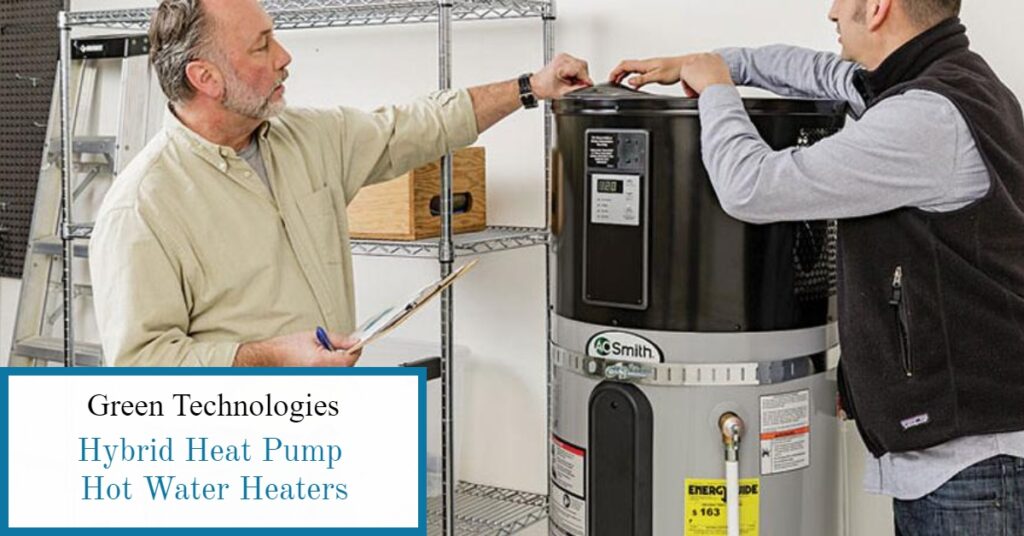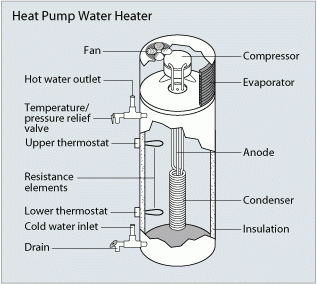Month: January 2022

Finding a local mover has many considerations to explore before deciding which one to hire. First, it is best to remember that each situation is unique. No move is like any other move. Second, there is no cookie cutter formula to finding the best local mover. It will take finding the best local mover for your situation. While each situation is different there are some basic questions that should be addressed before deciding. In other words, finding the best local mover is purely a personal endeavor.
First step is to do a little research online. Especially in this day of technology most movers are online or have a website. Spend a little time researching local movers and checking their website for reviews. Reviews are a terrific way to gauge how a mover interacts with their clients. The website can also be a great resource for what information should be gathered before making a call. Once the research is finished, start calling local movers for more information before deciding
What information is needed before calling a local mover.
Concise information is critical to a mover. Having most of the information before you call will save valuable time for both of you. So, what kind of information should you have ready? In addition to the obvious information such as name, address, phone number, date of move, and destination a mover will need a general idea of the type of contents being transported. Equally important is if any of the belongings are oversized such as a pool table or grand piano. Not only will this require additional help but may require specialized tools to move them. Oftentimes when thinking about contents to be moved the garage and basement are overlooked or the self-storage units are forgotten. Remembering these additional spaces will help the local mover provide a more accurate estimate. Therefore, having all the information will save time and result in a better estimate.
What questions should be asked before deciding on a local mover?
Before calling the potential mover, have a list of questions ready to ask. Remember each situation is unique and add any questions needed to cover your situation. Some of the most important questions to ask are:
Do they have their local license? Typically, each state has some sort of licensing. There are seven states that have no license requirements. Maine is one state that has no license to be a local mover. Be sure to verify if your state has a license requirement and if the mover has a current license. To help avoid a fraud situation, request a copy of the license for your records.
What insurance do they carry? Like the local license it is best to request proof of insurance for your protection.
Do they have a cancellation policy? If so, what is it? This is important as situations do arise that are out of our control. Knowing ahead of time about any charges will avoid a surprise if something does interfere with the move.
What type of payment options do they offer? Most local movers require a deposit on a job. Others might offer a 3 pay program. Each local mover will have their own payment plan. In addition, know what types of payments they will accept.
Would they prefer to pack any specialty items like televisions or other electronics? A local mover will oftentimes offer this extra service as added protection against damage. Due to the fact they could be held accountable for this damage. As experts they have the knowledge to protect delicate electronics.
Additionally, these questions would be important. How to contact the mover during the move? If they have references. How long do they estimate the move will take and what is their current availability? As each situation is different there may be other questions to ask.
Deciding is a personal matter
Cost can be the biggest determining factor when choosing a local mover. Sometimes the lowest estimate is not the best deal. Other determining factors may make cost a secondary aspect of the decision. In other words, the unique needs of this move may require a mover with more experience. Therefore, all the information that has been gathered should be examined to help you decide on the best local mover for your situation.
Once a local mover has been chosen, things to expect
A reputable mover will want to do a walk through to give an accurate estimate of the cost. There are a few situations where it may not be necessary. If the contents of the move are already in a self-storage unit. The local mover would know without looking what size truck would be needed based on the unit size and type of contents. Furthermore, they would know how many workers to send to complete the job easily. In general, most moves require a walk through.
Next a local mover may require you to sign a contract with them for the move. This is a wonderful opportunity to review the contract and ask any questions to clarify what is expected from each party. As always, read the contract in its entirety before signing.
Then expect a follow-up call a few days before the scheduled move. Good movers are busy. Therefore, do not panic if no contact happens between the signing of the contract and the few days prior to the move. Whenever your situation changes, contact the mover as soon as possible. Additionally, contact the mover the day before the move if you have not heard from them. At this time, it would be prudent to discuss any specific needs such as the self-storage unit being loaded first as it is going to be stored at another location.
Moving Day
The big day has finally arrived. The local mover you chose has arrived. Now what? Communicate with the supervisor any specific needs discussed at the pre-move phone call. Then trust the experts and let them do the job you hired them to do. The best thing to do is let the supervisor know where you will be, in case there are any questions. They know how to load the truck to keep everything safe, it is why you hired them.

Hybrid heat pump hot water heaters do not generate heat like a conventional hot water heater. Instead, they use electricity to move heat from one place (ambient air) to another (hot water tank). To move heat, they work like a refrigerator only in reverse. Hybrid heat pump hot water heaters use the air around the unit to generate the energy needed to heat the water but at a higher temperature conversion rate. Therefore, heat pump hot water heaters are more energy efficient than conventional hot water heaters. Increased efficiency means lower energy bills and greater savings over the life of the heater. Typically, 20% of electric bills are for heating hot water, a hybrid heat pump hot water heater cuts the cost of producing hot water by 73%, thus saving money.
How Hybrid Heat Pump Hot Water Heaters Work:
Heat pump technology has been around since 1948 and over the years has seen major improvements. The units are smaller, quieter, and more efficient than before. In 1948 American inventor Robert C Webber was experimenting with his deep freezer system and accidently burned his hand on the outlet pipe of the cooling system. As inventor minds go, he worked on a way to utilize this wasted heat. Before long, the first heat pump was built and used to heat his house and provide hot water for his family. Since then, technology has advanced, and the first large systems are now smaller and are more efficient.
Heat pump technology uses the ambient air around the system to heat or cool homes and businesses. Ambient air by definition; is air immediately surrounding of or relating to the immediate surroundings. The principle is the same as how a refrigerator cools but in reverse. A heat pump uses a compressor to take heat from the surrounding air and transferring it into a room. It uses this same principle to transfer heat at a higher temperature rate into the storage tank to heat water. Whereas a refrigerator uses the compressor to remove heat from the inside of the refrigerator and transfer it out into the air. Heat pump hot water heaters have a backup system of resistance elements. Resistance elements are used in conventional hot water heaters. The elements will be used when the ambient air temperature in the room is not high enough to operate the hybrid heat pump hot water heater efficiently. The ambient air temperature range for heat pump hot water systems is between 40°F (4.4°C) to 90°F (32.2°C).
What Size Hybrid Heat Pump Hot Water Heater?
Hybrid heat pump hot water heaters come in a variety of sizes. Which one will work best will depend on usage and family size. First determine the typical usage of the household. Is there a dishwasher, washing machine, how many showers a day are all things to consider before purchasing a system. Once there is a general idea of the type of usage choose the one that will suit those needs. If in doubt chose the next size up to be safe.
The most popular sizes for heat pump hot water heaters are 50-, 66-, and 80-gallon systems. The 50-gallon system is best for a two-person household. Then the 66-gallon system will work for a three to four-person household. Lastly the 80-gallon system is best for households of five or more people.

Settings and Features
Each system has a user interface or control panel. This easy to operate panel controls temperature settings, mode of operation, and diagnostic error reporting as well as providing the user with several programming options. Many have up to 99 programmable days available. This provides the user with many options for ultimate savings.
The modes are Efficiency, Hybrid, Electric, and Vacation. First, Efficiency Mode is when the system relies on heat pump technology or the compressor only to heat the water. Next, Hybrid mode will automatically adjust between the compressor and elements to match the demand for hot water. This means it will use the compressor to heat the water but when the demand is greater it will switch to the heating elements to meet the demand. The next setting is Electric Mode. Electric Mode is using the elements only which is the same as a conventional hot water heater. Lastly is the Vacation Mode. Vacation Mode drops the temperature of the water to 60 degrees. This will save money while away from the house for extended periods of time. It will also offer freeze protection while away.
Heat pump hot water heaters are insulated with an environmentally friendly non-CFC foam insulation. CFC is Chlorofluorocarbons which are used to propel the foam insulation onto a surface. They are recognized as a major contributor to ozone depletion. The Stratospheric ozone layer affected by the CFC’s helps protect the Earth and us from harmful ultraviolet rays. Therefore, the heat pump hot water heaters help save on electricity and protect the Earth from ozone depletion.
Another environmentally friendly aspect is the type of refrigerant used in self-contained heat pump units such as hot water heaters. The heat pump unit situated at the top of the hot water heater uses environmentally friendly R134a refrigerant. This type of refrigerant has zero ozone depletion. Lastly, each system has a safety feature called a dry fire protection control. This system checks to ensure water is present before firing the system. Therefore, it protects from burning up the elements prematurely.
Warranty and Other Useful Information
A conventional hot water heater typically last 8 to 12 years with the average warranty being about 6 years. The hybrid heat pump hot water heater typically last 13 to 15 years with a 10-year warranty. Not only does the system last longer, but the warranty also gives 4 extra years of peace of mind. As a bonus many manufacturers are offering rebates which helps reduce the price difference between a conventional hot water heater and the heat pump technology systems.
UEF is used to determine the efficiency of any electrical appliance. UEF stands for Uniform Energy Factor. In this case the UEF is the percentage of energy turned into hot water. The higher the UEF number, the unit will be more efficient and the less it will cost to operate. As an example, the typical UEF for electric hot water heaters is .65 – .95 and a hybrid heat pump hot water heater is 3.42 for a 50-gallon system, 3.52 for a 66-gallon system, and 2.73 for the 80-gallon system. Therefore, it is 300% more efficient than the conventional system resulting in lower heating cost.
How does a hybrid heat pump hot water heater last longer than a conventional system? Inside each system are anode rods. Anode rods attract the contaminants such as minerals and sediment in the water which protects the tank from corrosion. The ones inside the hybrid system are made with a stainless-steel core which last longer and offers better protection against corrosion. Inside the 66 and 80-gallon tank are two rods doubling the protection.
Things To Consider:
A hybrid heat pump hot water heater is taller than a conventional hot water heater. Make sure it will fit in the space designated. While the heat pump hot water heater is great for basements or garages it is best to remember that they are electrical equipment and generate noise. If installing in a small space, which can be done with an air duct adapter kit, think about if the noise will be bothersome. The noise is equivalent to a window A/C unit running. The systems become less efficient the lower the temperature is, therefore, if the area goes below 40°F consistently, it might be better to locate it in another place. Lastly, a little regular maintenance such as washing the filter will go a long way to keep the system running efficiently. Filter maintenance is minimal but important. Two times a year take a damp cloth and wipe the filter, then rinse it under running water and allow to air dry. This simple step will keep the filter clean and the system running efficiently.
Hybrid heat pump hot water heaters, while more expensive to purchase, offer greater savings on electricity cost. Thus, paying for themselves quickly. Deciding to use a heat pump hot water heater has many benefits and a few things to consider before purchasing. In other words, make sure a heat pump hot water heater will meet the hot water needs before purchasing. As always, use self-storage to help with any remodeling projects.
Recent Comments